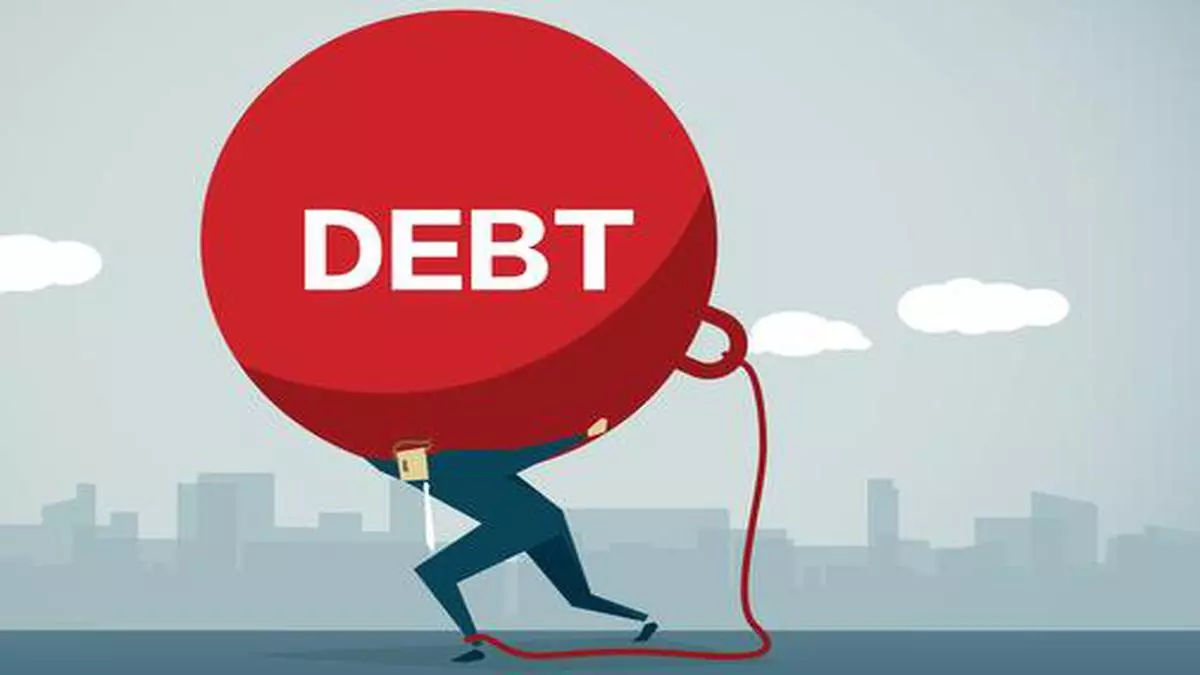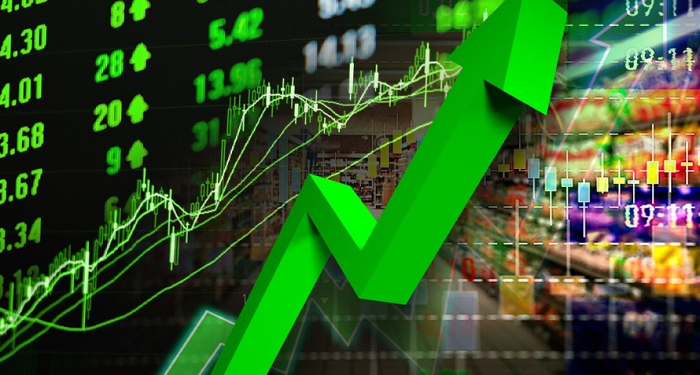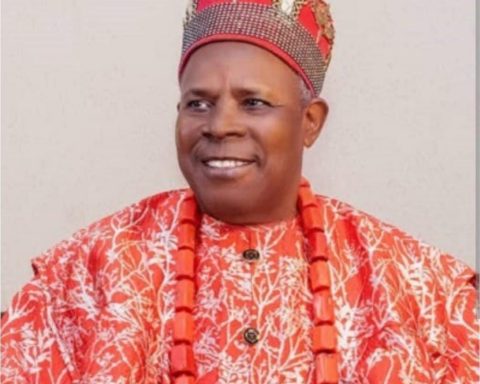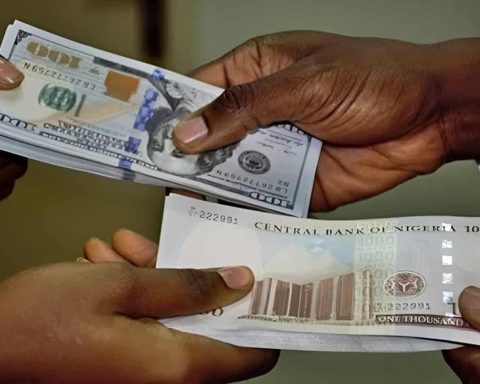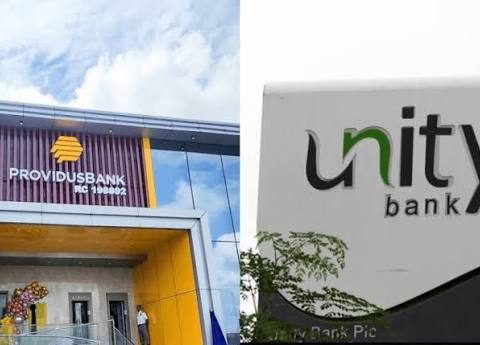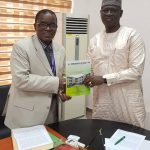Nigeria’s public debt stock recently soared to N134.3tn ($91.3bn), raising economic and political concerns across the nation. This latest rise of N12.6tn within a single quarter has left citizens, economists, and policymakers debating whether Nigeria is digging itself into an unsustainable debt hole or strategically leveraging capital for essential development.
In response to the rapid debt increase, Finance Minister, Wale Edun and other government officials insist that borrowing is critical for Nigeria’s financial health. But others, including international financial advisors like the International Monetary Fund (IMF), have voiced deep concerns over the direction Nigeria is taking, especially with its recent issuance of dollar-denominated domestic bonds. Here’s a closer look at Nigeria’s debt landscape and the controversies surrounding it.
Join our WhatsApp ChannelUnderstanding Nigeria’s Debt Surge
The Nigerian government attributes this recent debt spike mainly to the naira’s devaluation. As currency rates fluctuate, debt payments become more costly in local terms, though they may appear stable in foreign currency. Between Q1 and Q2 of 2024, domestic debt surged by N5.55tn, while external debt increased by $780m. The dollar value of the total debt has changed minimally, yet in naira terms, the situation has intensified dramatically.
“Debt stock grew in naira terms to N134.3tn ($91.3bn) from N121.7tn ($91.5bn) due to exchange rate devaluation,” reads the document shared during the World Bank/IMF meetings, reflecting Nigeria’s struggle against a weakening currency. Yet the country’s current debt-to-GDP ratio has surpassed 50%, a statistic that worries many economic analysts who believe this level could quickly become unsustainable.
Domestic Debt: The Greater Portion of Nigeria’s Financial Burden
Currently, Nigeria’s debt portfolio is dominated by domestic debt, making up 53% of the total, or N71.2tn ($48.4bn). This includes government-issued FGN Bonds, which constitute nearly 78% of the domestic debt, indicating a heavy reliance on local markets to meet funding needs. Other debt instruments, such as Nigerian Treasury Bills, Savings Bonds, and Green Bonds, show Nigeria’s varied but significant approach to domestic borrowing.
READ ALSO: IMF Warns Global Debt Crisis Could Threaten Nigeria’s Economic Stability
In a notable move, the government launched its first dollar-denominated domestic bond in August, aiming to raise $500m but ultimately bringing in over $900m due to an oversubscription by eager investors. “The IMF said to us that we shouldn’t do domestic issues of dollar bonds. We did it and were 100 per cent oversubscribed, but we still value their viewpoint,” Minister Edun remarked, highlighting the government’s independence but also indicating the high interest in Nigeria’s debt offerings.
External Debt: Nigeria’s Relationship with International Lenders
While domestic debt comprises over half of Nigeria’s total debt, external debt remains substantial, making up 47%, or N63.1tn ($42.9bn). Nigeria relies heavily on multilateral loans, which constitute 50.4% of its foreign debt, showcasing a preference for international financing from bodies like the World Bank and the African Development Bank. Bilateral loans make up 13.7%, while commercial loans contribute 35.9%, indicating Nigeria’s considerable engagement with private international lenders.
At the recent IMF meeting, Edun emphasised the important role international bodies like the IMF play in guiding Nigeria’s fiscal policy, but he insisted that their recommendations don’t always align with Nigeria’s goals. “These institutions can provide value, but we don’t always have to take their advice,” he asserted, signaling that Nigeria intends to act on its own strategic assessments rather than follow external advice blindly.
IMF’s Caution Against Borrowing
The IMF has been vocal about its concerns over Nigeria’s debt practices, especially the dollar-denominated domestic bonds issued earlier this year. From their perspective, these bonds could expose Nigeria to exchange rate vulnerabilities and increase pressure on future repayments, which could weigh down economic stability in the long term.
However, the government remains convinced of the benefits of these bonds, noting their ability to attract foreign capital and strengthen domestic financial markets. The oversubscription of the recent bond, raising almost double the anticipated amount, was touted by the Finance Minister as a sign of confidence in Nigeria’s economic prospects. “We’re very aware of the risks, but we believe the benefits outweigh them,” said Edun.
The Economic Debate: Sustainable Debt or Looming Crisis?
The major debate surrounding Nigeria’s debt trajectory hinges on whether the current borrowing pattern is sustainable. With the debt-to-GDP ratio already above 50%, many fear that Nigeria may be approaching levels where repayments could take a disproportionate share of its revenue, limiting funds available for essential services and development.
Critics argue that with much of the national budget allocated to debt servicing, social services like health, education, and infrastructure may be neglected, worsening the quality of life for ordinary Nigerians. Further owing without a clear repayment plan may lead to economic setbacks similar to the debt trap faced by several developing nations in recent history.
What Lies Ahead? Balancing Growth with Financial Responsibility
As Nigeria’s owing stock increases, so does the pressure on policymakers to address the situation. Many Nigerians are demanding a detailed action plan that includes concrete strategies to boost revenue, diversify the economy, and manage debt more effectively. Some economists advocate for a shift away from heavy borrowing to investment in local industries, such as agriculture and technology, which could generate jobs and enhance economic stability.
Others suggest that Nigeria needs to negotiate better terms with its international lenders or explore alternative funding sources that impose less financial strain. The government’s focus on local bond markets and the introduction of diverse borrowing instruments like Sukuk and Green Bonds indicate a willingness to innovate, but many believe that a more cautious approach is essential.
A Debt Strategy at a Crossroads
Nigeria’s rising debt stock, while enabling development, brings with it profound challenges and risks. As public owing approaches new highs, the debate over Nigeria’s financial strategy has reached a crossroads. Will Nigeria continue on its current path, confident in its strategy and undeterred by external concerns? Or will it heed the IMF’s warnings and consider alternative measures to ensure a financially sustainable future?
Ultimately, the decision rests with policymakers, who must weigh immediate economic gains against long-term financial stability. The Nigerian public and the international community await the next steps as Nigeria confronts the realities of its debt behemoth.


